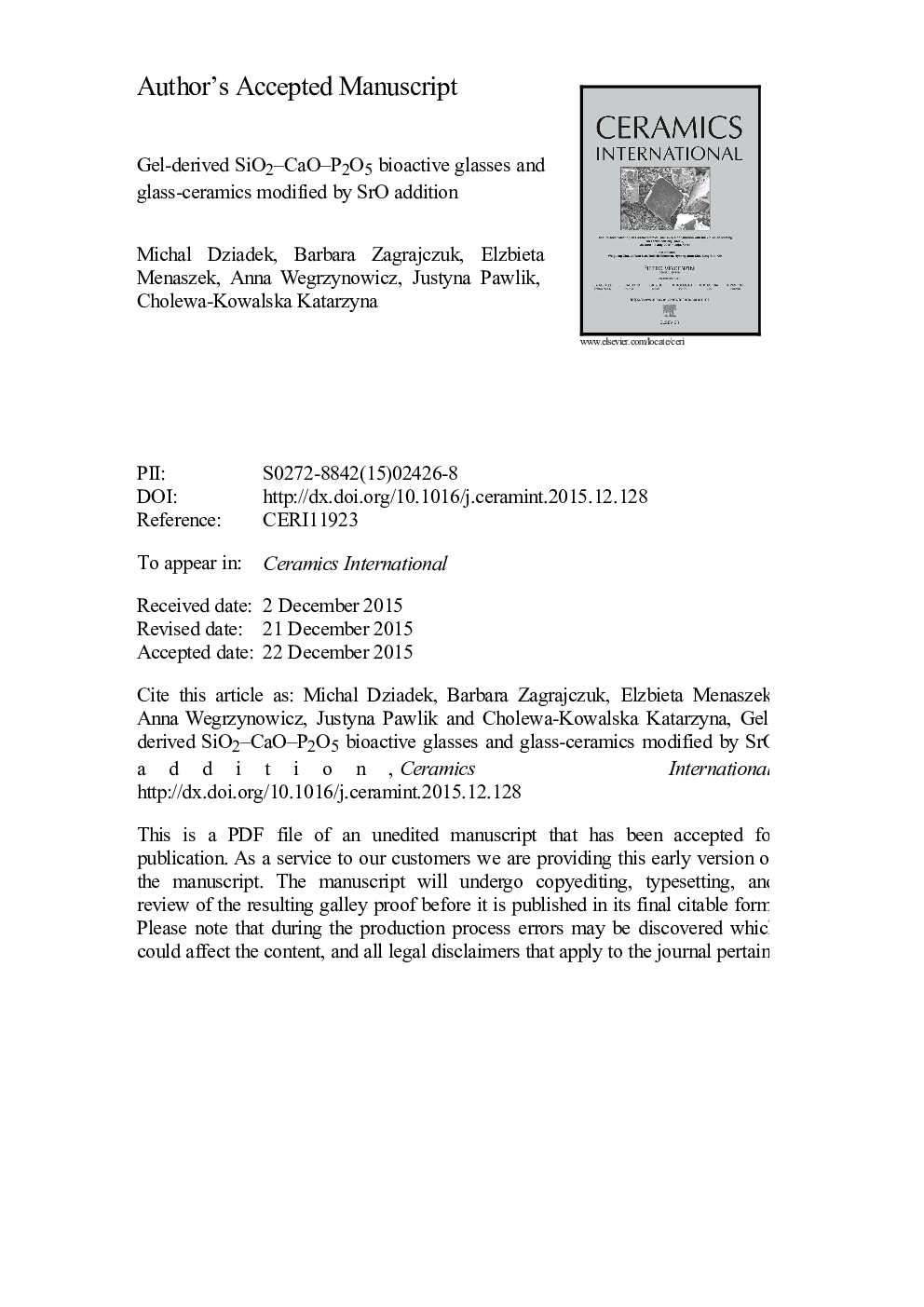| Article ID | Journal | Published Year | Pages | File Type |
|---|---|---|---|---|
| 10623953 | Ceramics International | 2016 | 39 Pages |
Abstract
The effect of SrO substitution for CaO in two sol-gel glasses with different chemical compositions (mol%) A2Sr: (54âx)CaO-xSrO-6P2O5-40SiO2 and S2Sr: (16âx)CaO-xSrO-4P2O5-80SiO2 (x=0, 1, 3 and 5) stabilized at 700 °C on their structure (XRD, FTIR) and bioactive properties (SBF test) was investigated. Preliminary in vitro tests using human articular chondrocytes of selected A2Sr glass were also conducted. Moreover, the subject of this study was to detect the changes on material properties after heat treatment at 1300 °C. The results show that the effect of strontium substitution on structure, bioactivity and crystallization after treatment at both the above temperatures strongly depends on CaO/SiO2 molar ratio. The presence of 3-5 mol% of strontium ions creates more expanded glass structure but does not markedly affect crystallization ability after low temperature treatment. Sintering at 1300 °C of A2 type glasses results in crystallization of pseudowollastonite, hydroxyapatite and also Sr-substituted hydroxyapatite for 3-5 mol% of SrO substitution. The increase of strontium concentration in silica-rich materials after sintering leads to appearance of calcium strontium phosphate instead of calcium phosphate. Bioactivity evaluation indicates that substitution of Sr for Ca delays calcium phosphate formation on the materials surface only in the case of silica-rich glasses treated at 700 °C. Calcium-rich glasses, after both temperature treatments, reveals high bioactivity, while crystal size of hydroxyapatite decreases with increasing Sr content. High temperature treatment of high-silica glasses inhibits their bioactivity. Preliminary in vitro tests shows Sr addition to have a positive effects on human articular chondrocytes proliferation and to inhibit cell matrix biomineralization.
Related Topics
Physical Sciences and Engineering
Materials Science
Ceramics and Composites
Authors
Michal Dziadek, Barbara Zagrajczuk, Elzbieta Menaszek, Anna Wegrzynowicz, Justyna Pawlik, Katarzyna Cholewa-Kowalska,
